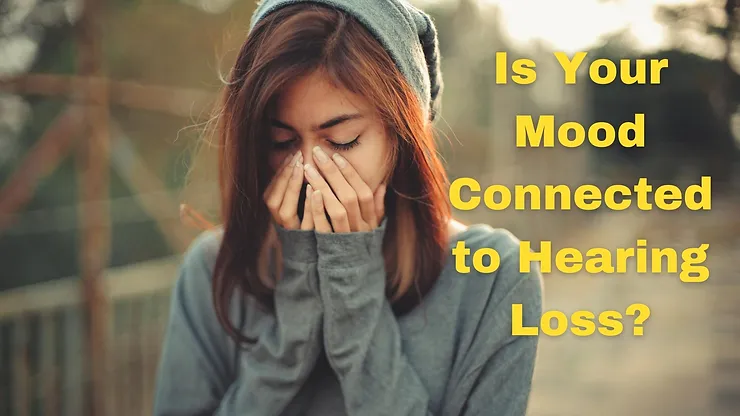
Untreated hearing loss can impair our ability to communicate, and that limitation can lead to a domino rally of other effects for health and wellness. Not only do those who struggle to communicate find that they become frustrated in the midst of the conversation, but some become anxious prior to having a conversation. With the idea in mind that it might be difficult to talk, these people struggle to engage in situations that require conversation. These tendencies illuminate some of the evidence that is emerging about the relationship between hearing loss and mood, specifically depression. With the key factor of conversation standing between these two conditions, you can see why hearing loss might contribute to depression in some cases. Let’s take a look at some of the studies that provide evidence before looking more directly at the reports of those who have both hearing loss and depression.
Research on Mood and Hearing Loss
The raw numbers do not lie when it comes to the correlation between the two conditions of hearing loss and depression. Those with hearing loss have higher rates of depression indeed, with 11.4 percent reporting severe depression and 19.1 percent reporting mild depression, according to one study. Another study looked more closely at the relationship between the severity of hearing loss and the incidence of depression. By looking at adults under age 70 with some hearing loss, they found that the likelihood of developing depression increased by 5 percent for every incremental drop in hearing ability, making it clear that those with worse hearing loss have higher rates of depression. These studies establish that there is a relationship between hearing loss and depression, but you might wonder if another factor was responsible for the connection. Although statistical methods were engaged to consider comparable groups of people in terms of demographics and other health concerns, the best way to understand the relationship is through first-hand accounts.
Explanations for the Connection
The connection between hearing loss and depression hinges on the ability to communicate. For those with untreated hearing loss doing errands or interacting with strangers, the struggle to converse can be an alienating experience, even causing anxiety. Some wonder if they will be able to live independently if they have trouble getting the resources they need. A simple conversation about options at a grocery or hardware store could become confused, leading a person to purchase the wrong item. Although these experiences in the world can cause frustration and anxiety, many people with untreated hearing loss describe the toll it can take on their closest relationships. Whether because they get angry during difficult conversations or they feel a loss of closeness, the frustration at home can make hearing loss feel inescapable for some.
Perhaps the most common report by those with untreated hearing loss is the inability to participate in conversations with others at social events, community gatherings, or family parties. When the nature of conversation shifts so quickly from topic to topic, often including new words that are unfamiliar, the struggle to understand what is going on can feel overwhelming. That frustration can lead to depression in some cases, making those with untreated hearing loss feel like they are not a part of their family, community, and social worlds any longer.
Treatment and Mood
When a person with hearing loss receives treatment, it comes as a great relief to know that many people find relief from depression, as well. Whereas conversations might have felt like threatening environments for failed communication, connections with families and loved ones can be restored through the use of hearing aids. When conversations become easier to understand, individuals are more inclined to take part in them, reengaging with the social world once again. Our families and communities are crucial to our mood and mental health, so maintaining these connections is one of the most important benefits of getting treatment for hearing loss.
If you have a loved one who seems to be struggling to participate in conversations, don’t put off a conversation about hearing ability. The discovery that your loved one has hearing loss is an opportunity to support their mental health and social wellbeing, leading to strong connections for years to come!
